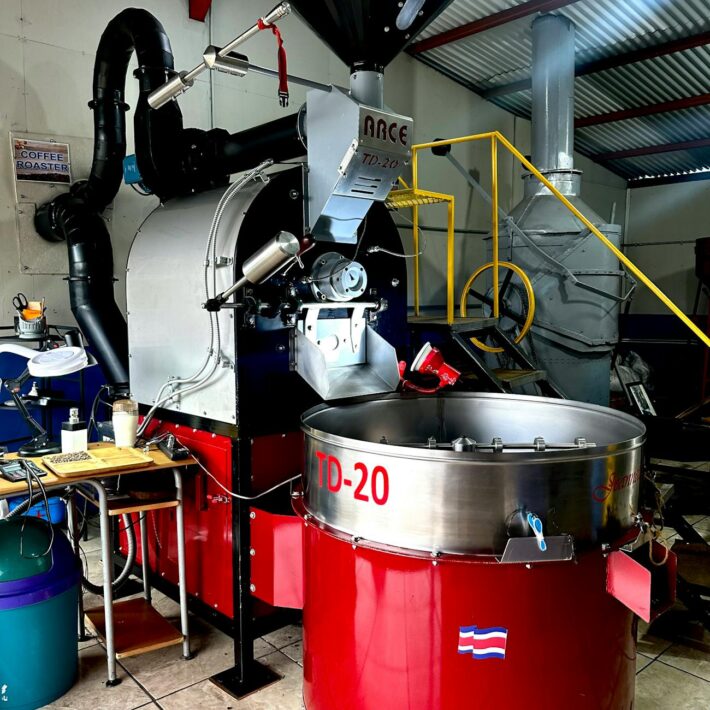Tool Distribution Business Ideas to Start in 2024

Contents
Tool Distribution Business Ideas to Start in 2024
In today's world, the demand for tools is soaring across various industries. From construction to landscaping, there’s a growing need for dependable tools that can enhance productivity. As we venture into 2024, aspiring entrepreneurs are presented with promising opportunities in the tool distribution business. Whether you're a seasoned professional or a beginner, there’s a niche waiting for you.
Overview of Tool Distribution Business Opportunities
Tool distribution encompasses various activities related to the supply, sales, and marketing of tools and equipment. It’s a crucial segment of the larger supply chain, connecting manufacturers with contractors, stores, and consumers. By diving into this business, you can become a vital link in the tool ecosystem, benefiting from the robust demand while enjoying considerable profit margins. For small business owners seeking a reliable and evergreen market, the tool distribution sector deserves serious consideration.
Types of Tool Distribution Business Ideas
Identifying the right type of tool distribution model that suits you can set the stage for success. Here are some compelling ideas to consider:
Retail Tool Store
Opening a retail store allows for direct interaction with customers, providing personalized service that online shopping often lacks. Choose a location that sees high foot traffic, such as near construction sites or residential areas. Consider your target audience—DIY enthusiasts, professionals, or both. A well-stocked inventory and a knowledgeable staff can go a long way in attracting and retaining customers.
Online Tool Store
E-commerce has transformed the retail landscape. An online tool store offers reduced overhead costs and a wide reach. Platforms like Shopify or WooCommerce can facilitate easy setup. Focus on niche segments, such as eco-friendly tools or specialized equipment for specific trades, to stand out in the crowded marketplace.
Mobile Tool Distribution
Imagine the convenience of bringing tools directly to job sites. A mobile distribution model serves contractors and professionals who need immediate access to tools without navigating traffic or long lines. A well-equipped van can also double as a workshop for tool demos.
Wholesale Tool Distribution
Selling tools in bulk to retailers or other distributors can be quite profitable. This model requires robust logistical capabilities to maintain inventory and distribution. Building relationships with manufacturers can enhance your credibility and provide a steady supply of quality tools.
Tool Rental Business
With countless DIY projects and short-term construction needs, renting tools has become increasingly appealing. You can invest in popular items such as power drills or lawn equipment, allowing customers to save money and space. Cater to contractors and homeowners alike, offering seasonal promotions to increase traffic.
Specialty Tool Distribution
Specializing in a specific trade, like woodworking or HVAC, allows you to target a niche market. Focusing on high-quality tools tailored to professionals can help boost your brand's reputation and customer loyalty. Upsell related products, like safety gear or maintenance supplies, as well.
Second-Hand Tool Reseller
There’s a treasure trove of opportunities in sourcing used tools, refurbishing them, and offering warranties to instill confidence in buyers. This model appeals to budget-conscious customers and promotes sustainability by reducing waste.
Tool Subscription Service
A subscription service that delivers tools to customers regularly caters to those who prefer flexibility over ownership. Create tiered plans based on usage, allowing customers to experience a variety of tools without commitment.
Green Tools Distribution
Environmentally conscious consumers are more than ever willing to pay for eco-friendly tools. Focusing on sustainable products can set your business apart. Build partnerships with eco-friendly manufacturers to strengthen your offering.
Tool Parts and Accessories Distribution
Tools require parts and accessories to function optimally. Distributing items such as drill bits, blades, or batteries not only complements tool sales but builds customer loyalty as a one-stop shop.
Industrial Tool Supply
Targeting larger industries means understanding their specific needs and maintaining robust relationships. Suppliers of specialized tools for manufacturing, construction, and other sectors can carve a lucrative niche in the market.
E-commerce Marketplaces for Tool Sales
Selling tools on established platforms like Amazon or eBay can significantly widen your audience. These sites offer exposure and built-in customer bases, assisting in reaching potential customers who might not find you otherwise.
Marketing Strategies for Tool Distribution Businesses
A strong marketing strategy is essential for establishing brand legitimacy and attracting customers in a competitive market. Here are some effective strategies:
Building a Strong Brand Identity
Creating a distinctive brand identity sets you apart from competitors. This includes designing an eye-catching logo and consistent messaging across platforms. A strong brand resonates with consumers, building trust and credibility.
Utilizing Social Media for Promotion
Social media can enhance visibility and engage with your audience. Share product demonstrations, DIY tips, and customer reviews. Platforms like Instagram and Facebook can cultivate loyal communities around your brand.
SEO and Content Marketing
To drive traffic to your online store, invest time in SEO strategies and offer quality content that meets your audience's needs. Blog posts about tool selection, maintenance tips, or product reviews can position you as an industry expert.
Networking within the Industry
Participating in trade shows and local business events is essential for building rapport. Networking can lead to potential partnerships and increase visibility within the community.
Customer Reviews and Testimonials
Encouraging customers to leave reviews can help you build an online reputation. Positive feedback not only fuels sales but can be leveraged in marketing campaigns.
Important Considerations for Starting a Tool Distribution Business
Before launching your tool distribution venture, consider these essential factors:
Researching the Market
Understanding market trends and customer needs is paramount. Conduct surveys, analyze competitor offerings, and spot gaps where you can position your business for success.
Supply Chain Management
Effectively managing supply chains ensures product availability. Build strong relationships with suppliers and maintain an organized inventory system to avoid disruptions.
Legalities and Permits
Starting a tool distribution business requires certain licenses and permits. Research your local regulations and secure the necessary paperwork to operate legally.
Pricing Your Tools Competitively
Striking the right balance with pricing is critical. While you want to stay competitive, ensure your prices reflect quality and help maintain profitability.
Conclusion
The tool distribution industry presents myriad opportunities for aspiring entrepreneurs in 2024. With thoughtful planning, a clear marketing strategy, and a commitment to quality service, you can thrive in this growing sector. Explore the various options that resonate with your skills and interests, and take the leap into entrepreneurship today.
Resources for Small Business Owners
- Consistent Branding: Tips on creating a uniform brand image.
- Logo Ideas: Inspiration for designing an impactful logo.
- What is Small Business Brand?: Learn about creating unique brand identities.
The world of tool distribution is open and waiting for you to make your mark. Start exploring these ideas today!

As our Chief SEO & Branding Strategist, Robert Ellison is a digital marketing visionary with over 25 years of experience transforming brands through smart, data-driven SEO and impactful storytelling. Known for his expertise in aligning technical SEO with authentic brand narratives, he leads our team in creating strategies that boost search rankings while building strong, sustainable brand identities. A trusted advisor and frequent industry speaker, Robert combines deep technical knowledge with creative insight, helping our clients not only reach the top of search results but also genuinely connect with their audiences.








